Five Questions for Bret Lathrope, New MIT Men’s Water Polo Coach
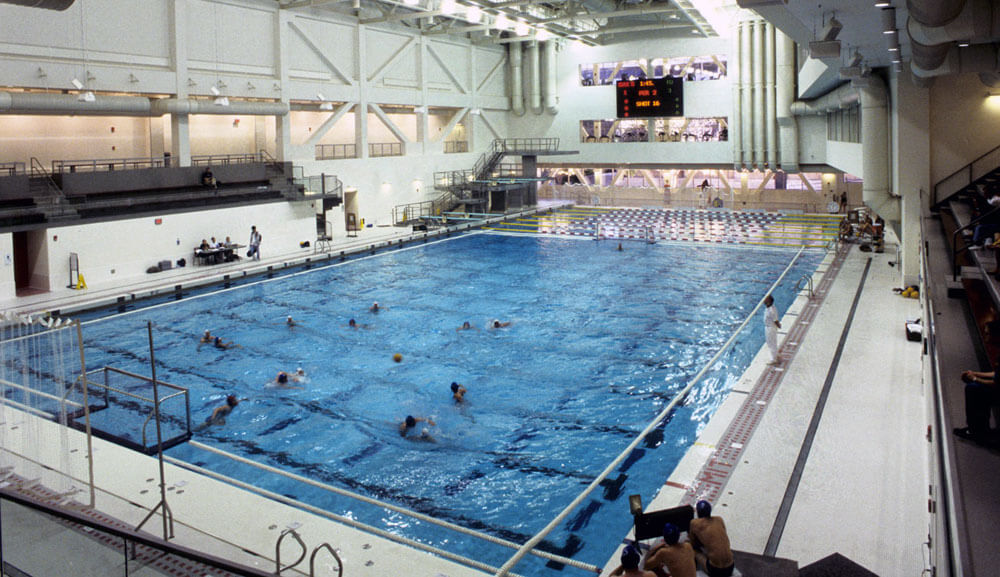
By Michael Randazzo, Swimming World Contributor
The Massachusetts Institute of Technology—among the world’s top institutions of higher learning—will never be mistaken as a top destination for water polo athletes. But the Engineers, a Division III program, have experienced outsized success in recent years, as evidenced by a 14-15 overall record just three years ago, including a 5-7 conference mark.
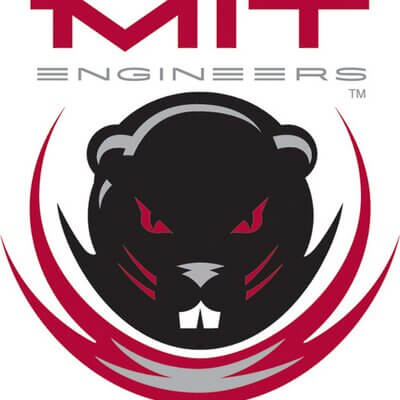
Last year MIT produced a disheartening 9-19 record (2-8 in the Northeast Water Polo Conference) which led to the departure of Dave Andriole, despite a respectable 58-85 mark over five seasons.
Now, it’s Bret Lathrope’s turn to steer the Engineers in the right direction—a challenge compounded by MIT being one of the most difficult schools in the country to gain admission to. He’s next up in a lineage of young, talented coaches who used the MIT job as a spring board to other opportunities, including Felix Mercato (2005-6), very successful the past 12 years at Brown; Adam Foley (2007-10), who produced the last winning polo record in Cambridge (16-11 in 2007) before building successful men’s and women’s programs at George Washington; and Mark Lawrence (2011-12), launching a new men’s program at Austin College this season.
Lathrope has noteworthy qualifications for the job; he was hardened in the ultra-competitive California water polo environment, he played at UCLA for Adam Wright, currently enjoying tremendous success in NCAA men’s competition, and spent last year as Andriole’s assistant, gaining first-hand knowledge of the brainy—and highly competitive—academic environment that the Engineers swim in.
Last week Swimming World was in touch with the freshman coach to find out his views on competition in the Northeast Water Polo Conference, how Bruin Pride is expressing itself this year in Cambridge and in Princeton, where ex-UCLA assistant Dustin Litvak is now leading the Tiger men, and how he plans to get the most out of some of the most academically gifted polo players in America.
– You and new Princeton coach Litvak come from successful California programs, including Miramonte High School, Agoura High School and UCLA. How difficult is it to coach in the East, where polo simply isn’t as strong or well-supported?
Coming from the West Coast, there is a very different perception of water polo out here versus the reality. There is a ton of potential. The challenge for me comes from the fact that there is a wide range of water polo backgrounds and experience.
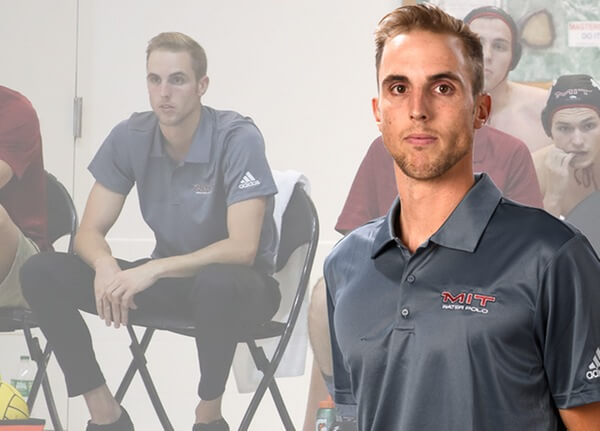
Bret Lathrope. Photo Courtesy: MIT Athletics
Growing up in the East Bay Area, and playing college in Los Angeles, most of my teammates began playing when they were 11 or younger, and played year-round through their college careers. In the East, the sport just hasn’t gained the same popularity yet, and the opportunities for high-level year-round training are very limited.
Due to this, we have a very broad range of experience and knowledge of the game on our team, so the challenge becomes bringing the whole team together, helping some of the less experienced guys improve and learn, while continuing to challenge the more experienced players.
– You spent last year as Coach Andriole’s assistant. What was educational about that season and how did your experience prepare you for the top job with Engineer water polo?
I learned a lot during last season with the team. MIT is a unique place to be a coach. I came from a very different collegiate athletic experience than what our team is going through, so shifting my expectations was initially a challenge.
These guys are attending classes at one the toughest institutions in the world, while working to compete in an all DI conference as a DIII team. It’s no easy task. During the fall, I was able to get a good feel of what they are going through academically, which has given me a good understanding of what I can expect from the guys, when I can push them a little more versus when I may need to back off.
It’s special knowing that with all of the outside academic pressure and challenges, the guys that are part of the program are passionate about the sport. They want to be part of the team and want to continue to improve. As a coach, it’s great to have a group of players that really want to learn.
You played four years under Adam Wright at UCLA. During your tenure the Bruins twice missed out on the top prize—an NCAA championship—getting to the title match in 2009 and 2011. What makes Coach Wright and the UCLA program so successful? What from your time in Westwood can your bring to Cambridge?
You’ve brought up some tough memories for me there. We actually missed out three times, also losing in the 2012 finals. But, Adam is a special coach. His knowledge of the game is incredible. I learned so much about water polo and life from him in four years.
His attention to detail is incredible. Almost nothing can be done right, which at the time can be frustrating as player, but also creates an environment of constant improvement. At MIT, we can never be satisfied with where we are as a team. There is always room for improvement. We must embrace this mentality as a group in order to be successful. This is also a trait that I hope my guys carry into their lives after water polo.
Adam is also very good at pushing the team mentality. No one player is more important than another. As he always used to tell us: “The train (team) is moving forward, whether you are onboard or not”. This was very apparent in my, and Adam’s, first year at UCLA in 2009. You might argue that we had no business making the finals that year. Player for player, we were not the most talented team, and put ourselves in a position where we were ranked 4th in the country heading into the conference tournament. Adam was able to get the group to buy into our system, and get us to believe in ourselves as team, not individuals.
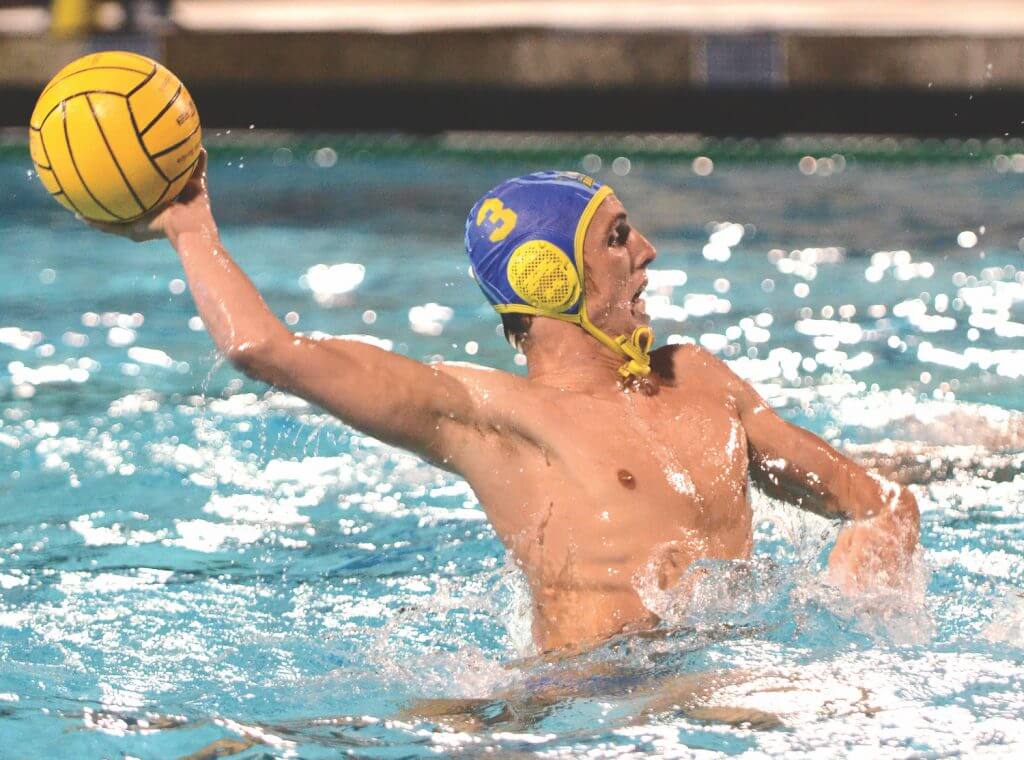
Lathrope as a Bruin. Photo Courtesy: UCLA Athletics / Eman Baha
At MIT, we must play as a team to be successful. We play in a very tough division, so we must buy into the system and believe in the team.
– Academics come first at MIT—to a degree beyond almost any other school in the country (as an aside, CalTech might have comparable academics but can’t win a game in a much lesser conference). How do you strike a balance between the exceptional education demands on your players and the rigor needed to succeed at water polo?
One of our biggest keys to success is using the time that we do have together efficiently. We get about 2 ½ weeks of total water polo focus prior to school starting, so this time is crucial. We have to get in shape, cover every aspect of the game, and come together as team, so it’s not easy.
Once school starts, our practice time becomes very limited. Academics do come first here, so it forces the guys to stay on top of their work in order to be ready for practice. My goal is to make water polo their daily release from whatever stresses and pressure they are dealing with academically. The pool is where they can come forget whatever challenge they faced that day in the classroom, and focus on playing a game and improving as athletes.
– You’ve inherited an eclectic roster. Federico Bescotti is a rising junior from Zimbabwe. Clyde Huibregtse is a New York City kid while Justin Xiang hails from Hong Kong by way of Deerfield Academy. No matter where the Engineers come from, they have to face Brown, Harvard, Iona, Princeton and St. Francis Brooklyn—perennially among the East’s best—twice per season. What will it take for the Engineers to succeed in the rough and tumble of the Northeast Water Polo Conference?
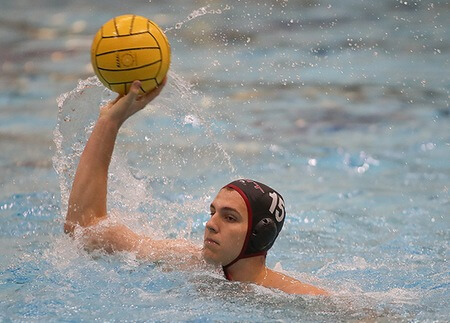
Clyde Huibregtse. Photo Courtesy: MIT Athletics
I think it’s awesome to have a group from all over the world, especially places that are not typical water polo powerhouses. I think the guys embrace each other’s individuality. We can all learn from each other’s life experiences, and become closer as a group in the process. The other thing is that everyone who gets into a school like MIT knows how to work hard.
They know what it’s like to dedicate themselves to something, and how to face challenges and come out on top. So, the keys to success for us are cohesiveness and hard work. We choose to embrace the “underdog” aspect of our team in the Northeast Water Polo Conference.



